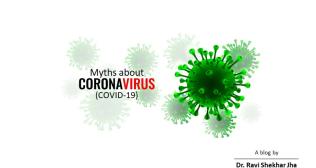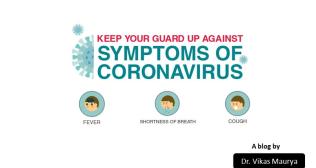
Asthma – Causes, Symptoms, Risk Factors & Treatment
Asthma is a chronic respiratory condition that affects millions of people worldwide, characterized by inflammation and narrowing of the airways, making breathing difficult. Asthma can be effectively managed with proper treatment and lifestyle adjustments despite its prevalence. Asthma can affect people of all ages, from children to older adults, and its severity can vary from mild to severe. During an asthma flare-up (or asthma attack), the muscles around the airways tighten, the lining of the airways swells, and mucus production increases, further narrowing the air passages.
Causes of Asthma:
1. Genetics: Asthma tends to run in families, suggesting a genetic component
2. Environmental Factors: Exposure to allergens (like pollen, dust mites, and mold spores), irritants (such as tobacco smoke, and air pollution), or respiratory infections can trigger asthma symptoms.
3. Respiratory Infections: Viral infections, particularly in early childhood, can increase the risk of developing asthma.
4. Occupational Exposures: Some workplace environments with exposure to chemicals, gases, or dust can lead to asthma.
5. Allergic Reactions: Allergic asthma is triggered by exposure to specific allergens that cause the airways to become inflamed and constricted.
Symptoms of Asthma:
1. Shortness of Breath: Difficulty breathing, especially during physical activity or at night.
2. Wheezing: A whistling or squeaky sound when breathing.
3. Coughing: Often worse at night or early in the morning.
4. Chest Tightness: Feeling pressure or discomfort in the chest.
5. Increased Mucus Production: The airways may produce excess mucus, leading to coughing and congestion.
6. Difficulty Sleeping: Asthma symptoms can disrupt sleep patterns.
Risk Factors for Asthma:
1. Family History: Individuals with a family history of asthma or allergies are at higher risk of developing asthma themselves. Genetics plays a significant role in predisposing individuals to asthma.
2. Allergies: Allergic reactions to common substances such as pollen, dust mites, pet dander, mold, and certain foods can trigger asthma symptoms. People with allergic rhinitis (hay fever) are at increased risk of developing asthma.
3. Smoking and Second-hand Smoke: Both smoking and exposure to second-hand smoke are significant risk factors for developing asthma, particularly in children. Smoking irritates the airways and increases inflammation, making asthma symptoms worse.
4. Obesity: Being overweight or obese increases the risk of developing asthma and can worsen asthma symptoms. Obesity is associated with inflammation in the body, including the airways, which can contribute to asthma development and severity.
5. Respiratory Infections: Viral respiratory infections, especially during early childhood, are linked to an increased risk of developing asthma. Infections such as the common cold and respiratory syncytial virus (RSV) can damage the airways and trigger inflammation, leading to asthma symptoms.
6. Occupational Exposures: Certain workplace environments with exposure to allergens, irritants, or pollutants can increase the risk of developing asthma. This condition, known as occupational asthma, can be caused by exposure to substances like chemicals, dust, gases, and fumes.
7. Air Pollution: Exposure to outdoor air pollution, including vehicle emissions, industrial pollutants, and particulate matter, can exacerbate asthma symptoms and increase the risk of developing asthma, particularly in urban areas with high levels of pollution.
8. Indoor Air Quality: Poor indoor air quality, including exposure to indoor allergens such as dust mites, mold, cockroach droppings, and pet dander, can contribute to asthma development and exacerbate symptoms. Improving indoor air quality through proper ventilation and allergen control measures can help reduce the risk of asthma.
9. Physical Activity: Intense physical activity or exercise can trigger asthma symptoms, particularly in individuals with exercise-induced asthma. However, regular exercise is essential for overall health and can be safely enjoyed with proper asthma management and precautions.
Treatment of Asthma:
1. Medications:
Bronchodilators: Relax the muscles around the airways to improve breathing.
Inhaled Corticosteroids: Reduce inflammation in the airways, preventing asthma symptoms.
Combination Inhalers: Contain both bronchodilators and corticosteroids for comprehensive asthma control.
Leukotriene Modifiers: Help prevent asthma symptoms triggered by specific substances.
Allergy Medications: Antihistamines or allergy shots may be prescribed to manage allergic asthma triggers.
2. Lifestyle Changes:
Identify and Avoid Triggers: Limit exposure to allergens, irritants, and respiratory infections.
Maintain a Healthy Weight: Obesity can worsen asthma symptoms.
Regular Exercise: Can improve lung function and overall health.
Quit Smoking: Smoking aggravates asthma symptoms and worsens lung health.
Asthma Action Plan: Work with a healthcare provider to develop a personalized plan for managing asthma symptoms and exacerbations.
3. Emergency Medications: Keep inhalers on hand for quick relief during asthma attacks.
Individuals with asthma need to work closely with their healthcare providers to develop an effective treatment plan tailored to their specific needs and triggers. Regular monitoring and adjustments to the treatment regimen may be necessary to keep asthma symptoms under control and prevent exacerbations.
Categories
Clear allMeet the doctor

- Pulmonology | Pulmonology | Sleep Medicine | Pulmonology and Critical care
-
10 Years
-
1200



















